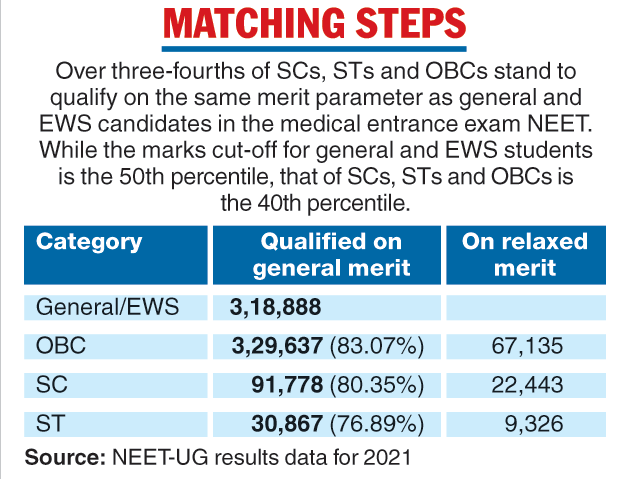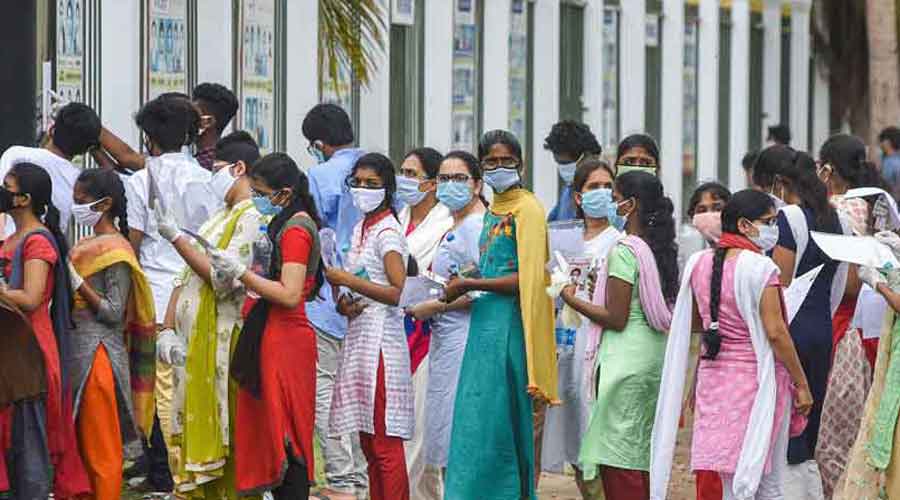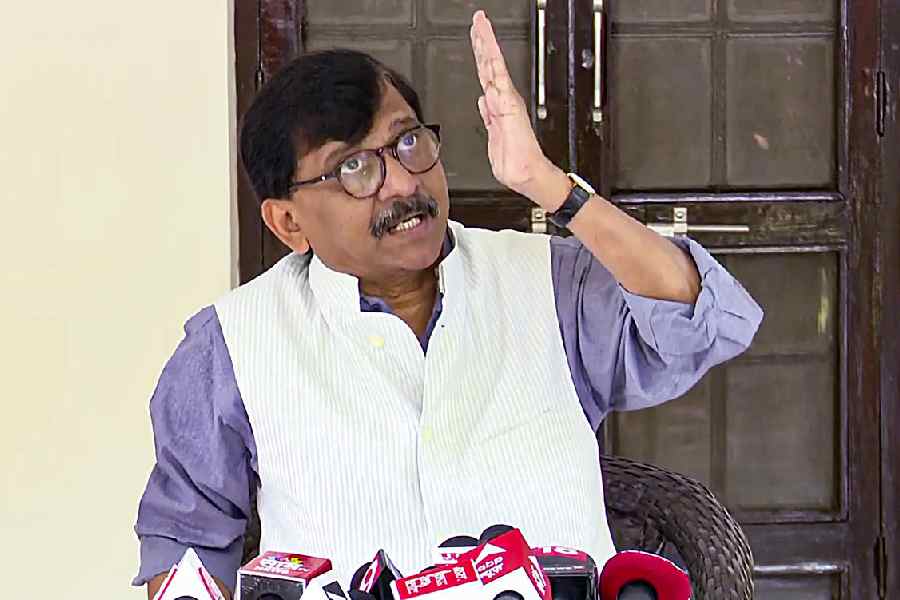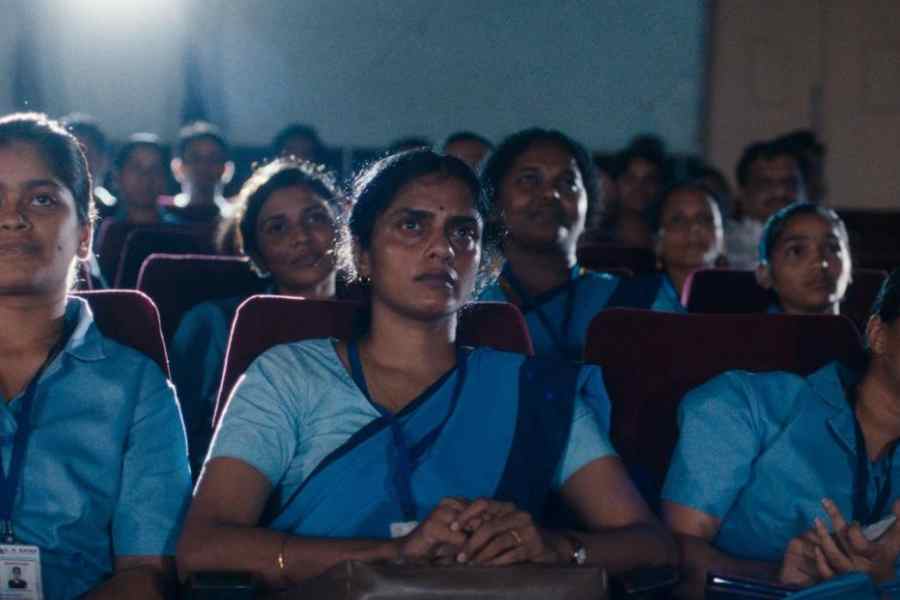Over three-fourths of the Scheduled Caste, Scheduled Tribe and Other Backward Classes students who have qualified in the undergraduate medical exam NEET this year have cleared the cut-off meant for the general category. They did not require the support of marks relaxation.
The results announced by the National Testing Agency on Monday show that over 83 per cent of the 3.97 lakh OBC candidates, more than 80 per cent of the 1.14 lakh SC candidates and close to 77 per cent of the 40,000 ST candidates have scored more than the 50th percentile cut-off meant for the general category and students from the economically weaker sections (EWS).
Out of the 8.7 lakh candidates declared qualified in the written exam, 7.7 lakh have scored more than the general merit cut-off while nearly 1 lakh have qualified on the relaxed cut-off of the 40th percentile.
The qualified candidates will now be called for counselling, the last round of filtering for admission to MBBS and BDS (dental) courses in medical colleges. Nearly 75,000 MBBS and 25,000 BDS seats are on offer.
The success of the candidates belonging to the SC, ST and OBC categories seeks to counter the questions raised by sections of advanced social groups on the merit of the socially backward sections, experts said.

N. Sukumar, who teaches political science at Delhi University, said SCs, STs and OBCs could do even better if they are provided proper training and guidance.
“The NEET results show that ‘merit’ is a manufactured term that is used to discriminate against SCs and STs. The fact is they are doing well without the support their peers (in the general category) usually get. SCs and STs coming from rural backgrounds do not receive much guidance and training. Yet they perform well,” Sukumar said.
He suggested that the government spend more on better training of aspirants from SCs and STs, especially for professional courses, by using the budget’s special component fund meant for these communities.
Amol Meshram, an alumnus of IIT Kharagpur, said the definition of merit as used by the dominant castes ignored the deprivation faced by the Dalit-Bahujan students.
“The definition of merit is discriminatory in nature and fails to consider the socio-economic background of India. It suits well those who can afford to get enrolled at expensive coaching institutes,” he said.
Meshram said 65.07 per cent of India’s population resided in villages and studied in vernacular languages. But the syllabus of exams like the NEET is more CBSE-oriented.
“When the government is planning a ‘one nation, one ration card’, why not one nation, one syllabus?” he asked.
This year, 16.14 lakh students had registered for the undergraduate NEET while 15.44 lakh took the exam and 8.7 lakh qualified. Those who scored between 720 and 138 were placed in the general-merit category. The relaxed cut-off for SCs, STs and OBCs was 108 marks.
The SC, ST and OBC candidates who have scored more than 138 will have the choice to avail themselves of the benefits of reservation or get admission in the common-merit category. Largely, though, these students choose the reserved category as the chances of getting admission in their preferred colleges is more considering there is less competition.
Mrinal Kutteri from Telangana and Tanmay Gupta from Delhi have topped the undergraduate NEET with full marks, or 720.
Sandeep Kumar Kandi from Madhya Pradesh is the topper among SCs with a score of 710 and a combined rank of 43. Naman Singh from Rajasthan is the topper among STs with a score of 705 and a combined rank of 75. Among the non-creamy layer OBCs, Deepak Sahu has topped with 715 marks and a combined rank of 5.












